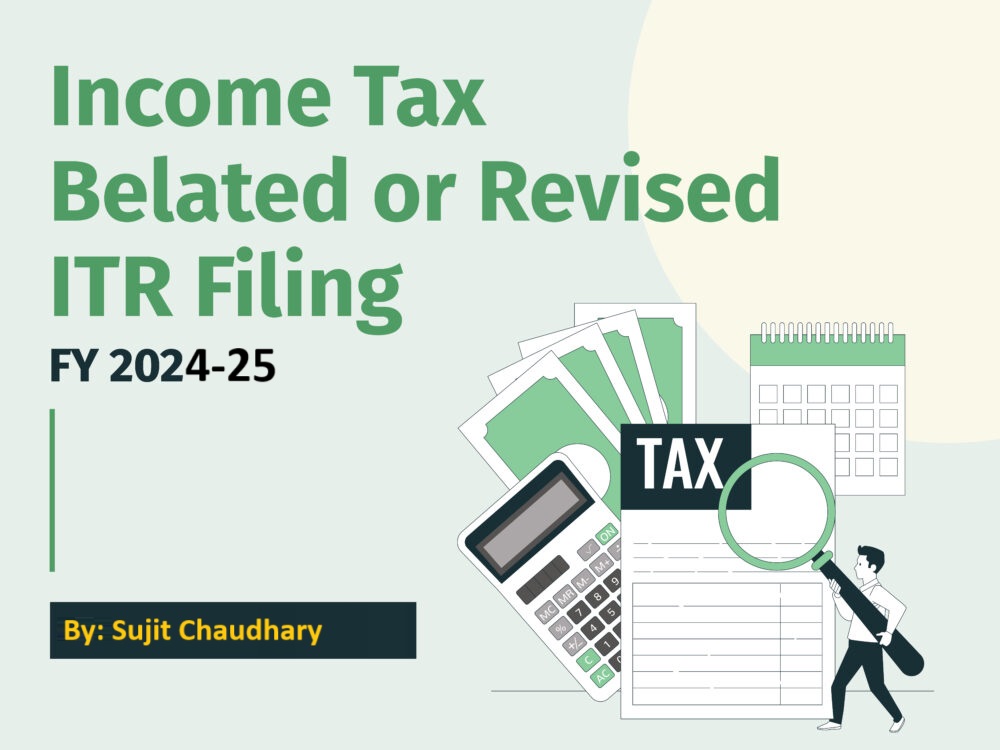The Income Tax Act, 1961, includes provisions under Section 234 that outline the penalties and interest levied for non-compliance with tax payment and filing timelines. Section 234 ensures that taxpayers fulfill their obligations on time, and failure to do so results in interest or penalties. This article explains the key sub-sections under Section 234, their applicability, and how to calculate the penalties.
Breakdown of Section 234
- Section 234A: Interest for Delay in Filing Income Tax Returns
This section imposes interest if an Income Tax Return (ITR) is filed after the due date specified under Section 139(1).
Interest Rate: 1% per month or part thereof on the unpaid tax amount.
Calculation Period: From the day after the due date until the actual filing date of the return.
Applicability:
Individuals, HUFs, and businesses who fail to file ITR on time.
Applicable only when there is an outstanding tax liability.
Example:
Tax liability: ₹50,000.
Return due date: July 31.
Return filing date: October 31 (3 months delay).
Interest: ₹50,000 × 1% × 3 = ₹1,500.
- Section 234B: Interest for Non-Payment or Short Payment of Advance Tax
This section applies to taxpayers who fail to pay 90% or more of their total tax liability as advance tax before the end of the financial year.
Interest Rate: 1% per month or part thereof on the unpaid amount.
Calculation Period: From April 1 of the assessment year until the tax is fully paid.
Applicability:
Salaried individuals, businesses, and professionals with significant income not covered under TDS.
Applicable if tax liability after TDS exceeds ₹10,000.
Example:
Total tax liability: ₹1,00,000.
Advance tax paid: ₹50,000.
Outstanding tax: ₹50,000.
Interest for 6 months: ₹50,000 × 1% × 6 = ₹3,000.
- Section 234C: Interest for Deferment of Advance Tax Installments
This section imposes interest for failure to pay advance tax in the specified installments as per the due dates.
Interest Rate: 1% per month on the shortfall amount.
Due Dates and Percentages:
By June 15: 15% of total tax liability.
By September 15: 45% of total tax liability.
By December 15: 75% of total tax liability.
By March 15: 100% of total tax liability.
Example:
Total tax liability: ₹1,00,000.
Advance tax paid by September 15: ₹30,000 (shortfall of ₹15,000).
Interest: ₹15,000 × 1% × 3 = ₹450.
- Section 234F: Late Filing Fee for ITR
This section imposes a fee for filing an ITR beyond the due date.
Penalty Amount:
₹5,000 if the return is filed after the due date but before December 31.
₹10,000 if filed after December 31.
₹1,000 if total income is below ₹5,00,000.
Example:
Taxpayer’s income: ₹8,00,000.
Return filed on January 15.
Penalty: ₹10,000.
Summary of Section 234 Penalties
How to Avoid Penalties Under Section 234
- File Returns on Time: Adhere to the due dates specified under Section 139(1).
- Pay Advance Tax: Ensure that 90% of the total tax liability is paid by March 31.
- Plan Installments: Pay advance tax in the correct percentages on or before the due dates.
- Use Tax Calculators: Utilize online tax calculators to estimate liabilities accurately.
Impact of Section 234 on Taxpayers
- Encourages Timely Compliance: Ensures that taxpayers adhere to filing and payment timelines.
- Increases Tax Discipline: Motivates individuals and businesses to estimate their tax liabilities accurately.
- Avoids Accumulated Interest: Timely payment reduces the financial burden caused by accumulating interest.
Conclusion
Section 234 of the Income Tax Act plays a crucial role in ensuring tax compliance by penalizing delays and non-payment. Taxpayers must understand the implications of these provisions and take proactive steps to avoid unnecessary penalties. Consulting with a tax professional and planning tax payments in advance can help manage liabilities effectively.


